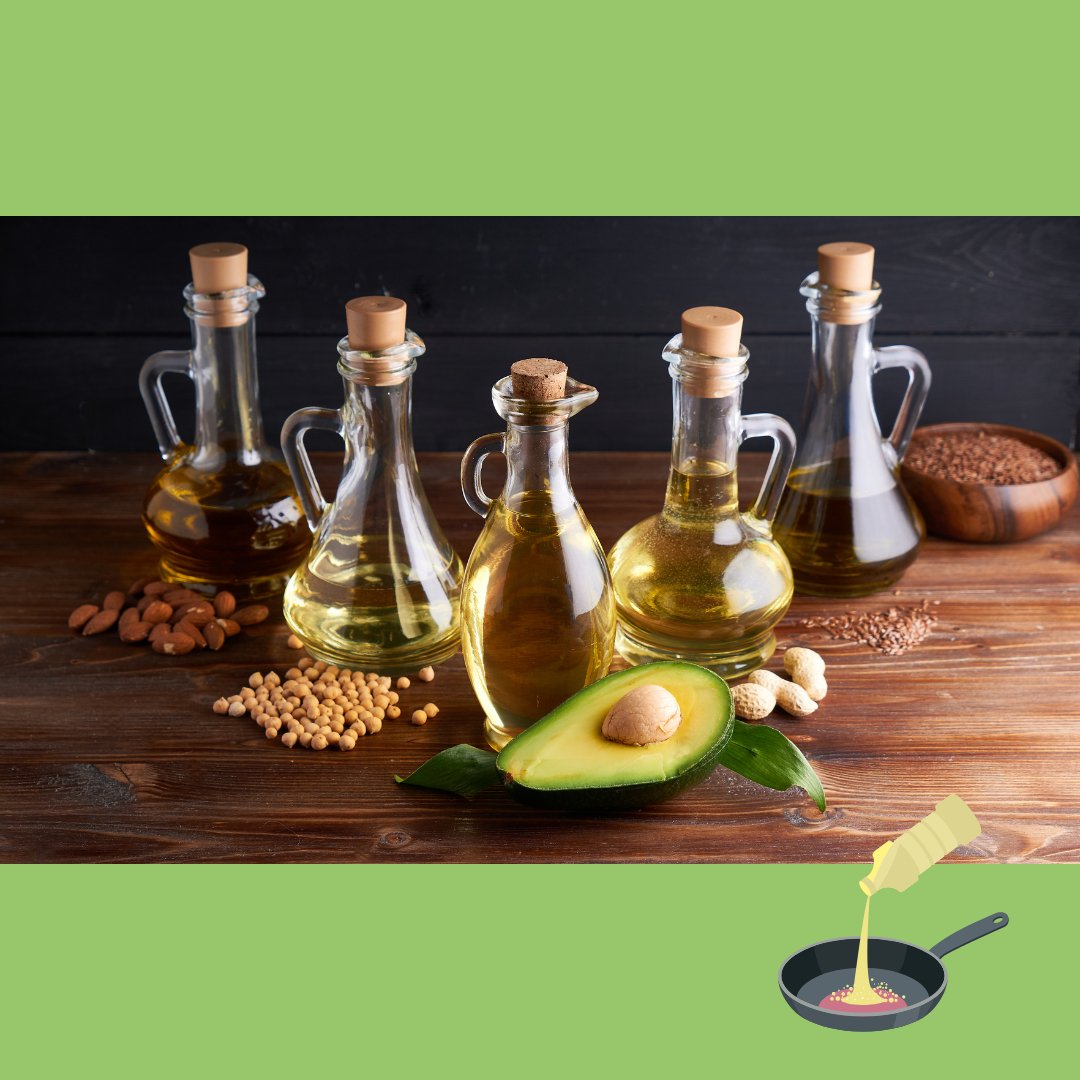Different Types of Cooking Oils: Pros and Cons
Cooking oils are essential ingredients in many recipes, each offering unique flavors, nutritional benefits, and cooking properties. Understanding the pros and cons of different types of cooking oils can help you choose the best one for your culinary needs and health goals.
1. Olive Oil
Pros:
- Health Benefits: Rich in monounsaturated fats, which are heart-healthy and can help reduce bad cholesterol levels. Contains antioxidants like polyphenols.
- Versatility: Suitable for a variety of cooking methods, including sautéing, roasting, and dressing salads.
- Flavor: Extra virgin olive oil adds a rich, distinctive flavor to dishes.
Cons:
- Smoke Point: Has a relatively low smoke point (around 375°F or 190°C), which means it can break down and lose nutrients at high temperatures.
- Cost: High-quality extra virgin olive oil can be expensive.
2. Canola Oil
Pros:
- Neutral Flavor: Mild taste that doesn't overpower dishes, making it versatile for cooking and baking.
- Health Benefits: Low in saturated fats and contains omega-3 fatty acids, which are beneficial for heart health.
- High Smoke Point: Suitable for high-heat cooking methods like frying (smoke point around 400°F or 204°C).
Cons:
- Processing: Often highly processed and refined, which can remove some nutrients and flavor.
- Genetic Modification: Many canola crops are genetically modified, which may be a concern for some consumers.
3. Coconut Oil
Pros:
- Flavor: Adds a subtle, tropical flavor to dishes, ideal for baking and cooking curries.
- Health Benefits: Contains medium-chain triglycerides (MCTs) that may boost metabolism and support brain health.
- Stability: Highly stable at high temperatures (smoke point around 350°F or 177°C for unrefined and 450°F or 232°C for refined).
Cons:
- Saturated Fats: High in saturated fats, which can raise LDL cholesterol levels if consumed in excess.
- Flavor Compatibility: Strong coconut flavor may not be suitable for all dishes.
4. Avocado Oil
Pros:
- Nutrient-Rich: High in monounsaturated fats, vitamin E, and antioxidants.
- Versatility: Suitable for high-heat cooking (smoke point around 520°F or 271°C) and can be used in dressings and marinades.
- Flavor: Mild, buttery flavor that complements many dishes.
Cons:
- Cost: Generally more expensive than other cooking oils.
- Availability: May not be as widely available as more common oils.
5. Vegetable Oil
Pros:
- Neutral Flavor: Doesn't affect the taste of dishes, making it versatile for cooking and baking.
- Cost-Effective: Generally inexpensive and widely available.
- High Smoke Point: Suitable for high-heat cooking methods like frying (smoke point around 400°F or 204°C).
Cons:
- Processing: Often highly processed and refined, which can strip away nutrients and flavor.
- Omega-6 Fatty Acids: High in omega-6 fatty acids, which can contribute to inflammation if consumed in excess.
6. Sesame Oil
Pros:
- Flavor: Adds a rich, nutty flavor to dishes, commonly used in Asian cuisine.
- Health Benefits: Contains antioxidants like sesamol and sesamin, which have anti-inflammatory properties.
- Versatility: Suitable for stir-frying, sautéing, and as a finishing oil.
Cons:
- Smoke Point: Relatively low smoke point (around 350°F or 177°C), making it less suitable for high-heat cooking.
- Flavor Compatibility: Strong flavor may not be suitable for all dishes.
7. Peanut Oil
Pros:
- High Smoke Point: Suitable for high-heat cooking methods like frying (smoke point around 450°F or 232°C).
- Flavor: Mild, nutty flavor that complements many dishes, especially in Asian cuisine.
- Stability: Resistant to oxidation, which makes it a good choice for deep frying.
Cons:
- Allergies: Not suitable for those with peanut allergies.
- Omega-6 Fatty Acids: High in omega-6 fatty acids, which can contribute to inflammation if consumed in excess.
Choosing the right cooking oil depends on your specific needs, including the type of cooking, desired flavor, and health considerations. Olive oil is great for heart health and flavor, canola oil offers a neutral taste and high smoke point, coconut oil provides stability and a unique taste, avocado oil is nutrient-rich and versatile, vegetable oil is cost-effective, sesame oil adds a distinctive flavor, and peanut oil is excellent for high-heat cooking. Understanding the pros and cons of each can help you make informed choices for healthier and tastier meals.





